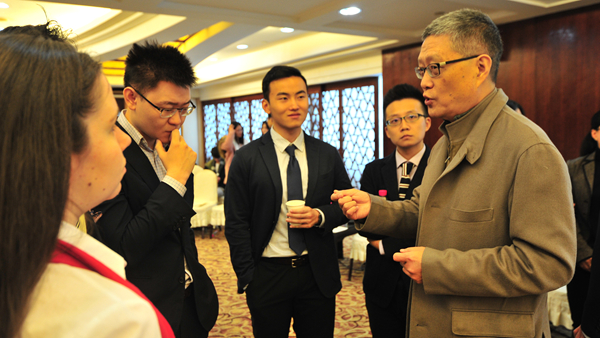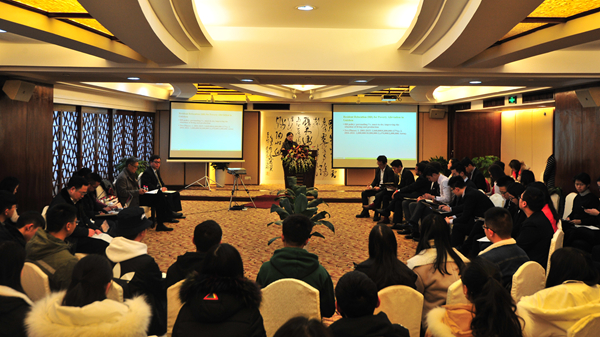From January 10th to 14th, 26 Yenching Academy faculty, staff and students embarked on an exciting journey to explore China’s vivid southwestern province of Guizhou. Once regarded as the place where one can enjoy sunshine for no more than three days (天无三日晴), where there isn’t three feet of flat land (地无三尺平), and where people have no more than three coins in their pockets (身无三分银); Guizhou today is the epitome of China’s reform and opening up to the outside world. It is a province that cultivated advantages of late development and followed its own unique development path.
This field study trip, led by Professor Chen Changwei, provided Yenching Scholars with the opportunity to witness a rapidly modernizing landscape of this southwestern province; allowing students to observe the fusion of latest technological advancements with traditional ethnic cultures and unspoiled natural sceneries. With more than nine hundreds rivers, colorful mountains that cover more than 92% of its territory, 17 ethnic groups, the Huangguoshu Waterfall --the biggest waterfall in Asia—and FAST, thebiggest radio-telescope in the world, Guizhou is truly a unique meeting point of traditional and modern, natural and technological, and certainly a thrilling field trip destination.
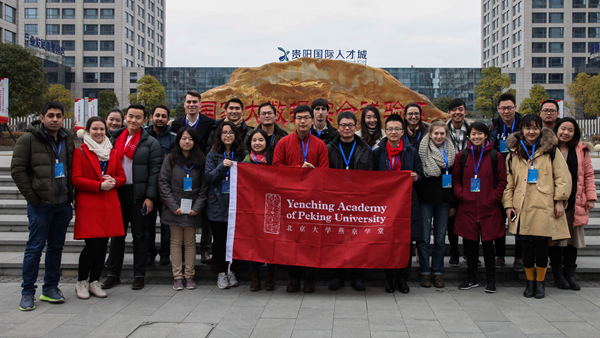
Scholars began their trip inGuiyang, the capital city of Guizhou, visiting Guiyang International Talent City, home to the city’s big data industrial development cluster district. In this area, they took a tour through the Guizhou Big Data Comprehensive Pilot Area Exhibition Centre where they learned more about the city’s goals in harnessing the power of big data. A major theme during the day was the application of big data for various purposes — Scholars were enlightened as to how the application of big data managed to help the city handle emergency crises; and how local firms and the government worked hard to integrate the Big Data gathered from traffic police check ins and trucking paths to optimize use and construction of highways.
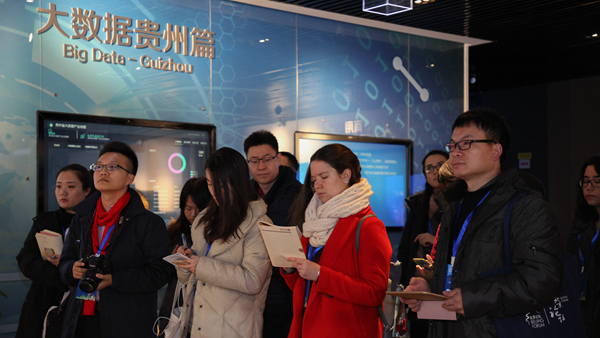
Afterwards, Scholars visited Longmaster Information Technology Co., Ltd, a company that focuses on providing off-line and on-line health care services through an online website and phone application that aims to simplify the medical procedures for potential clients.
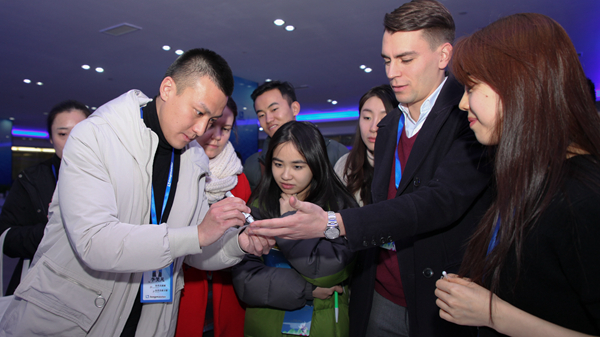
Finally,Scholarshad a meeting and talked with members of the International Mountain Tourism Alliance, an international NGO focused on the sustainable development of mountain tourism, protecting mountain resources, preserving mountain cultures, and facilitating international tourism exchange. The Scholars were the first group of foreign visitors hosted by IMTA since its launch.
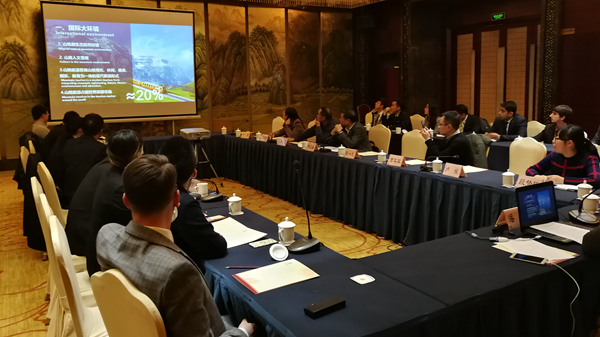
The next day,Yenching Scholars visitedDanzhai WandaVillage in theDanzhai County, home of many Chinese ethnic minorities. There, they learned about local cultural traditions and engaged with traditional ethnic handcrafts such as birdcage-making, wax-printing, paper-making as well as the traditional Miao’s cuisine. Moreover,Danzhai WandaVillage visit provided Scholars with a comprehensive picture of localgovernment’s role incultural ethnic preservation andpoverty alleviation.
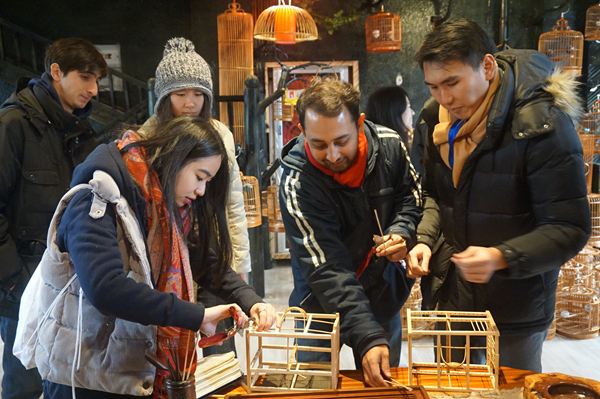
Later during the day, YCA Scholars visitedMoutai Agriculture Company, a local producer of blueberry liquor and acquainted with the role of Internet technologies in branding and exporting local products to the wider national market.
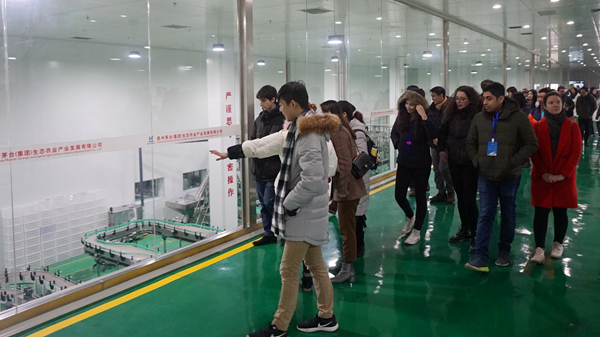
On the third day, Scholars visited the Tangyue and Xiaohewan villages to observe the poverty alleviation and development efforts undertaken by the government under the auspices of the ‘beautiful village’ project. The well-developed roads, houses, and surrounding areas made an indelible impression of development that is undergoing even in the remotest parts of China – credit to the generous financing from the local, central government and other private financing organizations. In Xiaohewan village, the average income of the villagers have almost tripled compared to the 2014 level, mostly due to the increasing number of tourist spending in the area. At the end of the Xiaohewan village tour, Scholars had an exchange with the head of the village to get theirs questions and queries answered. Scholars engaged in a lively exchange with questions ranging from financing to migration to sustainable income related to the village development plans.
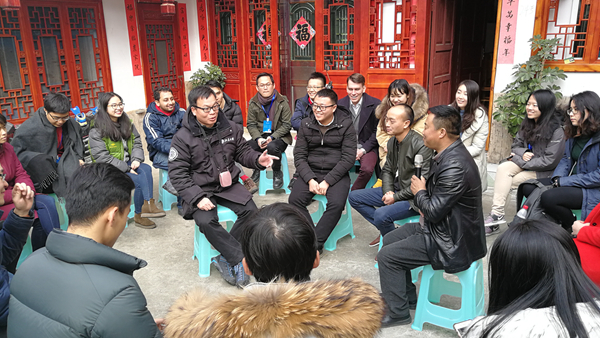
Guizhou is also the home of the FAST or “Five-hundred-meter Aperture Spherical Radio Telescope,” a more than RMB 1 billion project and the largest in the world, popularly known in Chinese as “Tianyan or Eye of the Heaven”. People joke, “if you are lucky enough, you can meet the God there’’ After a three hour ride from Guiyang through the Zigzag path of Guizhou’s colorful mountains, scholars arrived at the planetarium and received an overview of the years of arduous planning and technological innovation employed in building the FAST. Scholars took another thirty minutes hike to reach the top of the tower to get a marvelous view of the FAST, nested like a spherical birdcage surrounding the lush and green mountains. While FAST is a symbol of China technological advancement, it also exhibits China’s ambition to lead space research and exploration of lives outside the solar system.
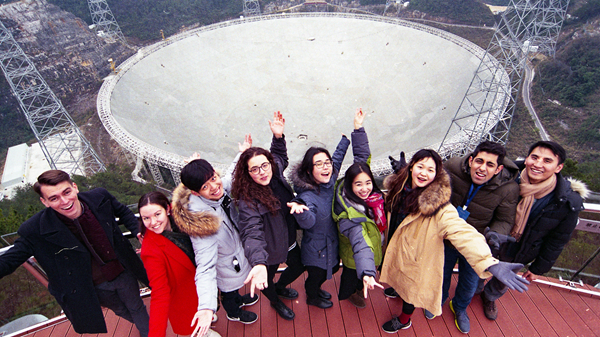
The whole trip culminated with an exchange with representatives from the local government, where Professor Yin Jingjue from the Guizhou National Academy of Social Sciences made a presentation on economic development in Guizhou and Professor Zhang Xiaosong from the Guizhou Normal University presented us about the long history of diversity, ethnic cultures and the concept of harmonious development in Guizhou, and they were joined by two famous artists from Guizhou, both of whom belong to ethnic minorities. Professor Yin outlined the vision, plans and strategies that government has undertaken in recent years to alleviate poverty and spur economic development, and the impacts that those have had on the lives and livelihood of the people in Guizhou. At the end, Professors and other representatives from the local government responded to various queries of the scholars and engaged in a lively exchange moderated by Professor He Yafei.
